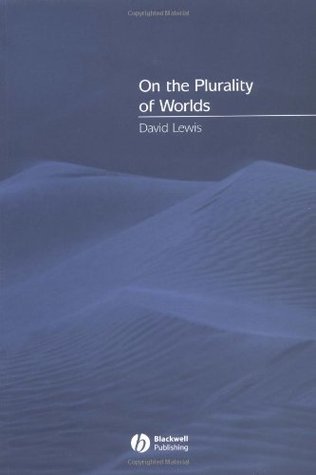What do you think?
Rate this book


This book is a defense of modal realism; the thesis that our world is but one of a plurality of worlds, and that the individuals that inhabit our world are only a few out of all the inhabitants of all the worlds. Lewis argues that the philosophical utility of modal realism is a good reason for believing that it is true.
276 pages, Hardcover
First published November 1, 1985